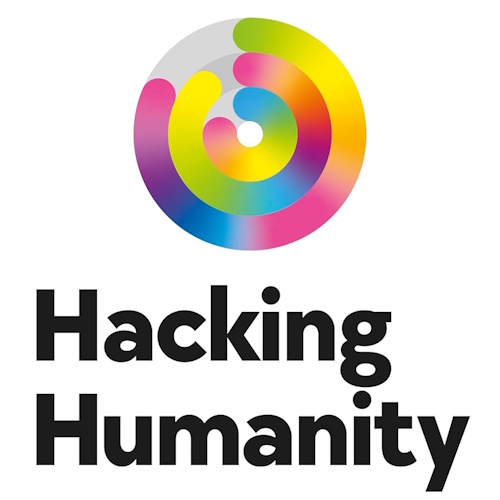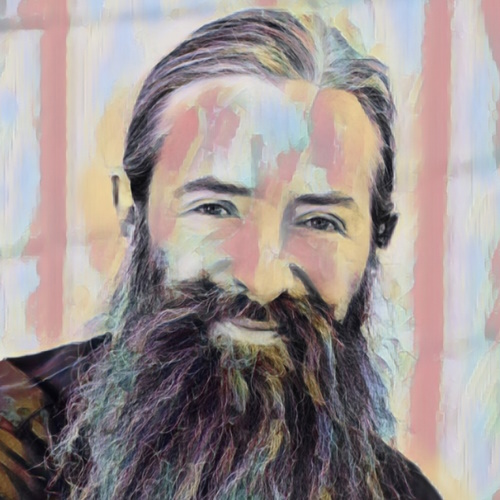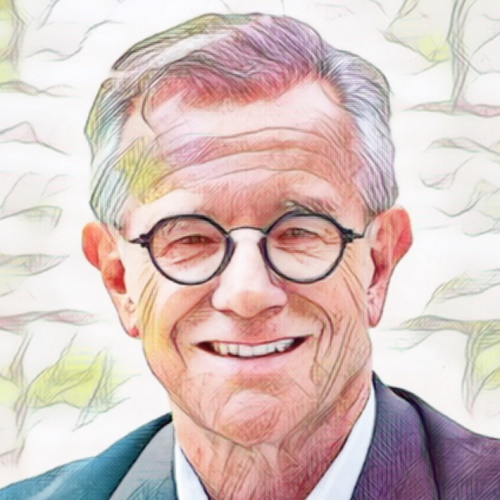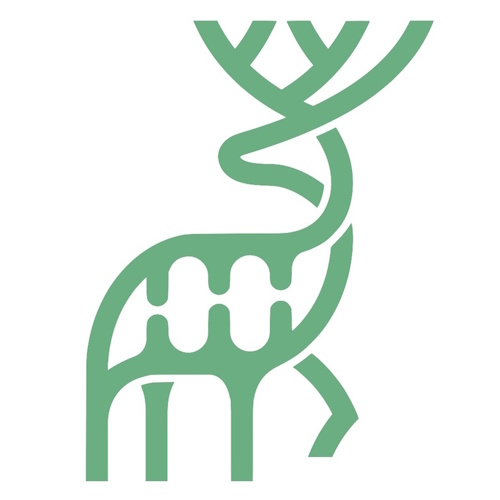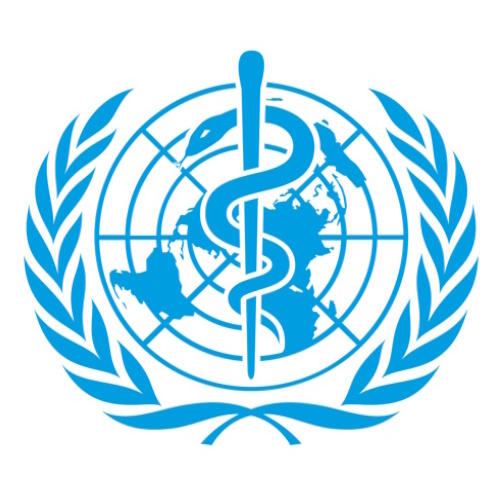Hacking Humanity
How technology can save your health and your life written by Lara Lewington
Technology can feel overwhelming. Robots stealing our jobs, big Tech taking over the world, endless social media doomscrolling…
But behind the scaremongering there are fascinating innovations developing for how technology can make our lives better and longer-lasting. There are tremendously exciting developments in preventing disease, health monitoring, slowing our ageing and improving our well-being.
This book will be an antidote to all the negativity about where tech is taking us. It will instead tell a positive story from the front-line of health to show the exciting ways we are learning to improve ourselves and work WITH, rather than AGAINST technology to make our lives better.
Hacking Humanity Book Review
If you’ve ever seen Lara Lewington present on TV, then you’ll know she is very enthusiastic, positive and witty – all of which come across in this book. In fact, it’s written exactly the way she talks so I often found myself reading it in her voice.
With a common theme of technology, Hacking Humanity covers a wide range of lifestyle-related topics. This isn’t a book only for geeks (though Lara obviously is one!) but for anyone interested in how technology is impacting our health today and what more is to come. It certainly helps that she visited so many companies as part of her BBC job which provides some real behind the scenes insights.
There is also a brief introduction to life extension, with a mention of Aubrey de Grey, and I think she provides a fair and sceptical review of the longevity industry. Neither for or against, but a let’s wait and see attitude – the best we can get from a mainstream journalist at the moment.
The book includes plenty of personal anecdotes and her own experience with different gadgets. You get to learn a bit about her as a person, such as, although she is interested in health, she’s not a keen exerciser – and even deeper, when she recalls being called fat by her PE teacher at school and her grief on losing someone from cancer. Maybe her own life experiences have made her more in tune with the general public – the average person probably has more to learn from Lara than a world-class athlete or biohacker.
Highlights
Here are 101 key points from Hacking Humanity:
- Life expectancy for an English woman stands at a grand 83 years of age, but with 20 of those years spent in suffering. That’s nearly a quarter of her life!
- AI in healthcare dates back to the 1970s.
- The oft-cited target of 10,000 steps a day that some of us obsess over was not born out of precise science anyway, but a marketing campaign during the 1964 Tokyo Olympics.
- Wearing a Fitbit, Apple Watch and Oura Ring, the activity data and heart-rate differences were negligible.
- Exercisers live on average seven years longer than those who don’t exercise.
- Exercise has been seen to be on par with cognitive behavioural therapy (CBT) for depression.
- We can only see the changes if we know what our baselines are.
- When I last tested a bunch of the consumer portable air quality devices, my main take-away was how little distance you needed to travel from a main road for the readings to be dramatically lower.
- There is no consensus on how useful continuous glucose monitoring (CGM) is for non-diabetics.
- Even just a small amount of exercise within the hour after a meal can help flatten the blood sugar spike.
- It also turns out you can eat the same food in a different order to avoid spikes, and even potentially lose weight.
- We may soon be able to use our gut microbiome data as an early warning system for diseases.
- Three quarters of the world’s food originates from just 12 plants and 5 animals.
- Sleep deprivation is growing globally.
- In Japan a nap at work, known as ‘inemuri’, is considered a sign of dedication and hard slog.
- Japan clocked the lowest average of 6 hours, 6 minutes sleep a night.
- Sleeping for only six hours nightly is linked to a 33 per cent increased risk of accidents, compared to getting seven or eight hours.
- Numerous people in the health-tech space who prioritise setting an alarm to go to bed, over the one to wake them up.
- Insufficient sleep will compromise your immune system dramatically.
- I’m yet to meet a former insomniac who thinks tech solved their waking nightmare.
- Women generally feel the urge to sleep earlier as melatonin is secreted earlier in the evening for women than men.
- The World Health Organization has now designated night-shift work ‘a probable carcinogen’.
- Some people who are depressed develop subconscious changes in physical behaviour which can be picked up and measured with the AI.
- There are chatbots that are specially designed to have a positive impact on our mental health.
- Some wearable tracking devices like Whoop and the Oura Ring also aim to assess your stress levels.
- Histone activity is impacted by how we live and what we are exposed to.
- Epigenetic changes can be reversed, and that can impact our risk of disease.
- Your individual DNA data isn’t as valuable as you might believe: its worth comes from being amassed at population level.
- While rare diseases are by definition uncommon, there are more than 7,000 types of rare disease in existence, so that in the UK, one out of every 17 people has one.
- Our genetics can dictate our response to medications, sometimes rendering them ineffective, or even unsafe.
- Instead of considering ourselves healthy until we don’t feel it, we could be constantly optimising our bodies.
- Altos Labs is working on what it calls ‘cellular rejuvenation programming’ in an attempt to create drugs that might be able to reverse disease.
- High polygenic risk score doesn’t mean you’ll get a disease, and not being at heightened risk doesn’t mean you won’t.
- In 2024, research from UK Biobank revealed that it had unearthed the ability to predict 67 different diseases from blood proteins.
- Heart disease is the number one killer, accounting for around a third of all deaths globally.
- 10 per cent of the world’s population share a pattern in their ECG readings that is associated with lower life expectancy and hypertensive heart disease.
- In 2006 replacement bladders were the first engineered organs to be transplanted into humans.
- It is possible to join together various different organs-on-a-chip to see how the bodily functions interact with each other.
- Biotech company LyGenesis is tricking a lymph node into carrying out liver function.
- None of us want to get cancer, yet terrifyingly, nearly half of us will.
- Someday we may be screening our bodies for disease all the time without even thinking about it.
- Many experts have told me the biggest challenge isn’t creating drugs that kill cancer, but creating drugs that kill cancer and are tolerable.
- In 2011 immunotherapy was used in 3 per cent of cancer cases; by 2019 that had risen to 39 per cent.
- Even the most conservative of oncologists I spoke to, who felt there had been little change over the past quarter of a century, now think that we’re at the point where change is about to accelerate at pace.
- The drug discovery process that would previously have taken 10-20 years can now be reduced to 18–24 months with the help of AI.
- Researchers at the Medical University in Vienna have been using cultured cells of patients’ own tumours to test drugs outside the body first.
- Obesity is not a choice, it’s a condition– often a complicated one.
- Adults have obesity. 2 It’s 26 per cent in the UK, with a further 38 per cent being overweight.
- In the mid-Victorian era people consumed twice as many calories as we do today, but their levels of physical activity matched it.
- Wegovy was the first weight-loss drug the FDA had approved since 2014.
- Obesity does not mean you are well nourished.
- Not everyone who has diabetes is obese and not everyone with obesity has diabetes.
- Augmented reality, virtual reality and mixed reality devices often being used for medical training.
- Telepresence bots are being used in imaging, and in delivering radiotherapy.
- AI tools can be combined to drive the surgical robots while recognising the next steps needed based on what they see and recalling data from biopsies and scans.
- I met warehouse workers dressed in back-supporting exoskeletons ... helping them lift heavy boxes, boosting their strength by 30 kilograms.
- Perhaps the question is really whether robots can help look after or provide company for older adults.
- Retinal scans may be able to pick up other neurodegenerative or cardiovascular diseases.
- Elon Musk’s long-term ambitions for Neuralink is creating ‘closer symbiosis between human and artificial intelligence’.
- Psilocybin, the compound in magic mushrooms which makes them psychedelic, has been successfully trialled to treat conditions including eating disorders, treatment resistant depression and PTSD.
- Bryan Johnson's experiments were intriguing but aside from only being one person, it’s going to take a long time to truly understand the results.
- Ageing is the main risk factor for chronic disease and mortality.
- Before the eighteenth century, half of newborns died before their fifth birthday.
- Hong Kong has the highest life expectancy at 84.5 years, followed by Japan, Singapore, South Korea, Switzerland and Australia.
- Infectious disease has been overtaken by non-communicable chronic disease such as cancer, type 2 diabetes and heart disease.
- Even if we live to our 80s, we can only expect to spend 64.8 of those years, on average, in good health.
- In England it is even more stark, with the average person spending 20–25 per cent of their life in poor health.
- Supercentenarians who are living to over 110, generally disease free, and for them, genetics appear to be playing a much bigger role than for the rest of us.
- A drug can’t be approved for simply ‘ageing’, unless we were to categorise it as a disease.
- Despite all the talk of preventative drug development, exercise, sleep, what we consume and our state of mind– needs to be our priority.
- Aubrey de Grey claimed ‘there’s at least a 50/ 50 chance’ that ‘most people alive today’ could live to 1000.
- Tech bro types have been having blood transfusions from younger men, to be rejuvenated by the youthful benefits of the younger person’s blood.
- Eric Verdin predicts that if we live well, most people could live to be 95 in good health.
- Start-up Loyal’s longevity drug for dogs is expected to get conditional FDA approval in 2025.
- one of the fastest-ageing part of a human: a woman’s ovarian tissue.
- Female humans could soon live ‘more of their lives after menopause than before’.
- At menopause, the chance of heart disease quadruples overnight.
- Our hormones can affect the impact of drugs on us.
- A WHO Europe report from 2019 calculates that 69 per cent of reported suicides were male.
- Fauna Bio has been studying what happens to squirrels during deep hibernation to try to unlock new ways to reverse damage to the human brain.
- As we age our brains shrink, we lose brain cells and connections.
- It’s estimated that late-onset dementia affects 0.9 per cent for those aged 60–64, rising to 41.1 per cent for those who make it to 95 years or over.
- The patterns, the changes, the ups and downs– this is the power of what 24/ 7 monitoring can do for us in many areas of health and disease.
- More women than men suffer from dementia, with around twice the number of women developing Alzheimer’s disease.
- My great revelation on the secret of this Seventh day adventist Blue Zone? Probably that there is no secret: the people I met just lead really healthy lives.
- Living longer without increasing healthspan isn’t what any sensible person wants.
- The functional decline that can ensue as a result of feeling isolated, not belonging and a lack of companionship is real.
- Japanese island Okinawa is fast moving away from its Blue Zone benefits.
- The biggest secret of the Blue Zones is perhaps just how much of an impact those small lifestyle changes can make over the course of your life.
- Every person I talk to wants to see money and time put into prevention.
- In the UK, two thirds of over 65s are predicted to be living with multiple health conditions by 2035.
- Increasing our healthspan means we can work longer, pay more tax and live fuller lives.
- Slowing ageing down for everyone by just one extra year would be worth $38 trillion to the US economy and an estimated £5 trillion to the UK’s.
- Mass subsidising of cheap health testing kits could lead to money saved later due to fewer sick people.
- At 50, 80 per cent of Brits are still in work, but by the state pension age of 65 (it is now 66 for some) it’s closer to a third.
- In the UK right now life, income protection and critical illness insurance policies can ask about genetic tests which can affect the level and cost of your premium.
- By 2022, the NHS alone was already using more than 130 AI platforms to help diagnose or treat at least 70 different conditions.
- While it is widely accepted that prevention can cost a lot less that treatment, it is not always the same pot of money for both, and that complicates things.
- One size does not fit all, and technology will bring more personalised care.
- We’ve a way to go to reach a future where all of the best technologies are available to all of us.
- This was the story I wanted to tell: one of unfolding science, technological advancement, and crucially, hope.
Visit website: https://www.penguin.co.uk/books/465031/hacking-humanity-by-lewington-lara/9780753561140
Details last updated 19-Jul-2025
Mentioned in this Resource
Neuralink
Company developing high bandwidth brain-machine interfaces to connect humans and machines.
World Health Organization (WHO)
Specialized agency of the United Nations responsible for international public health
